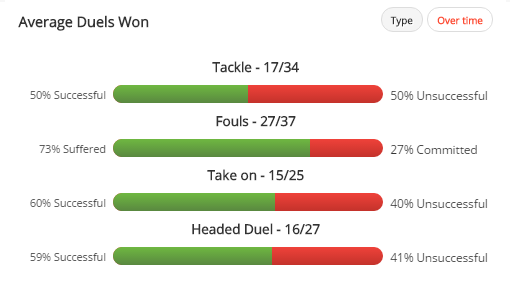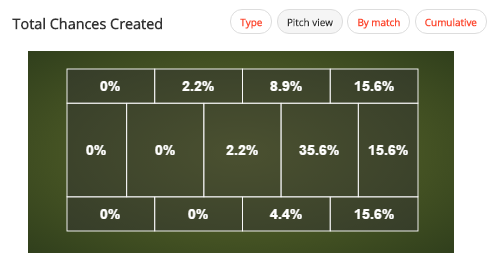Game changers in the making
Let us look at six of the best teenagers who still play in their home countries. Rather sooner than later, these players will most likely give some of the elite players at elite clubs a run for their money.
One of many talents in the AFC Ajax squad, Riechedly Bazoer has the potential to be the next big thing in Dutch football. The Utrecht-native was acquired by Ajax as a free transfer from PSV in November of 2012, although he had been linked with a move to the Premier League with Arsenal, Chelsea, and Manchester City. Making his debut for Ajax during a pre-season friendly against SDC Putten in 2013, Bazoer has since played 46 matches for Frank de Boer’s side and even made his first appearance for the senior Netherlands team last November.
Bazoer mostly plays in central midfield, yet he is everything but a calm playmaker. In many moments of his performances he reminds observers of a Paul Pogba-esque presence. Bazoer has an extremely loose style, when he dribbles. He uses smooth sidesteps in one-on-ones, with explosive moments at times when receiving the ball. Bazoer is also a master of touching the ball with his sole, making use of it to escape the pocket, or just to loosen the stiffness of an attacking play.
The 19-year-old slightly lacks a strategic vision. He, nevertheless, makes the right decisions frequently, sitting on his instincts rather than his football IQ. Having said that, the Dutch midfielder has recently shown glimpses of playmaking abilities, coming out of the backfield.
Outside the pockets, he has more time to look around twice. And that is when he can deliver assisting passes to his team-mates. Plus, he displays a great position and space awareness in open zones, most of the time taking the right paths after getting the ball.

Bazoer’s duels in Eredivisie matches in the season of 2015-2016 | Squawka.com
If clubs think they find a technical and eloquent deep-lying playmaker in Bazoer, they are simply wrong. He does not work properly enough with the ball, so that he could put his own team at risk to get hit on the break, when he plays behind the full-backs and other midfielders. He is, however, a dynamic, explosive, and positively wild instigator. A guy we should keep an eye on.
Andrija Živković is a man for records. He is not only the youngest player ever to make a senior appearance for the Serbian national team, but his name is also part of Partizan history as the club’s youngest captain ever. Živković joined Partizan in September 2009, becoming a member of the club’s promising generation, alongside Danilo Pantić and Nemanja Radonjić. Following his competitive debut for their senior team in a league fixture against Novi Pazar in April 2013, Živković has made 93 appearances for the Parni valjak, becoming Partizan’s youngest captain of all-time at 17 years, 7 months and 18 days in his first full season.
Considered the Serbian Messi – not the first one – and linked with several European clubs, Živković is a spectacularly unspectacular winger. Instead of looking for the next highlight reel pass, he plays the easy yet more effective ball. Aware of his speed advantage, Živković mostly uses linear runs down the flank, simple sidesteps and diagonal cuts when entering the last third.
Make no mistake about it, he can also embarrass defenders, but usually does that when facing inferior competition in league games. In certain moments, he forces one-on-ones on the flank. On a downside, Živković sometimes chokes off the fluidity of an attacking play. As far as strategical thinking and group tactical understanding go, he is still a white belt, but a white belt with potential.
It is a kind of storminess that influences Živković’s game outside of one-on-ones. His long balls played as instep kicks provide evidence of that. He wants to take responsibility and be a playmaker, but thereby he becomes hasty and sloppy.
Known as a hot-head, it could only be his temper that hinders him from moving to a club in Western Europe soon. His feet are good enough to make him a breakout star in the near future.
Among many other talented players, Ante Ćorić is part of the future of Croatian football. The Zagreb-native, whose father has been a football manager, signed for the youth academy of NK Zagreb at the age of nine. His potential quickly drew the attention of foreign clubs such as Bayern Munich, Chelsea, and Barcelona. In 2009, Ćorić joined the youth academy of Red Bull Salzburg, though. After four years in Salzburg, he returned to Croatia and signed with GNK Dinamo Zagreb for a transfer fee of 900,000 Euros in 2013, making his senior debut against RNK Split in April of 2014.
It is hard to get a hold of Ćorić – for opponents as well as for observers. The 18-year-old is the kind of fluid attacker who loves to play with his balance when taking on a defender. A lot of feinting is also part of his natural movement in offense, setting up varying one-twos or deep balls. Utilising insinuated passes and stops with his sole to change the rhythm in a micro-cosmos at a high frequency, Ćorić becomes slightly predictable after a while. That either forces him to use simpler moves or to play in a more controlled manner.
That said, it is still unclear which role fits him the best. Ćorić seemingly needs options having the ball at his feet, so that a number ten could be his most effective role. Particularly his sleek through balls to release a team-mate behind the opposing back line qualify him to be fielded in the middle. It, nevertheless, remains questionable if he could maintain his presence in midfield while playing for an elite team.
Born in Yaoundé, Cameroon, Breel Embolo‘s destiny is linked with Switzerland whose citizenship he received in late 2014. Embolo started his career with Nordstern and joined Old Boys two years later. In 2010, he signed for FC Basel, winning the U16 Swiss Champion twice with the club. Making his senior debut in March 2014, Embolo has become an unreplaceable player in Basel’s attack. The 6 feet 1 inch striker has scored 26 goals in 82 domestic and international matches, being described as “a sensation” by his former team-mate Fabian Frei.
At times, Embolo reminds a bit of Pierre-Emerick Aubameyang, as he favours to sneak between two defenders, relying on his speed advantage after receiving a pass. Moreover, the versatile striker is capable of playing in the centre as well as on the wing. Especially his thoughtful playing style, avoiding superfluous flim-flam in dribbles and often positioning himself quite accurately, Embolo seems more mature than many other 18-year-olds.
At Basel, he frequently drops back into the number ten`s space or waits in the half-space to set up combos, penetrating the space behind the opposing back line. Generally, his sharp off-the-ball movement helps him to be in position after releasing the ball instead of just stopping and waiting what his team-mates are about to do. Moreover, Embolo shakes off man-markers with ease, which is one of his main strengths. This element paired with the ability to bring his body between opponent and ball and a strategically good selection of shots make him a force to be recognised in the next years.
Over the last decades, we have seen Brazilian wingers and forwards come and go, with the certainty that there will be another talent just around the corner. Corinthians’ Malcom Filipe Silva de Oliveira – or simply Malcom – has surely the potential to be the next bright star of a pride football nation, although other Brazilians at his age, like Chelsea’s Kenedy, have already made the big step across the Atlantic Ocean. Born and raised in São Paulo, Malcom has joined Corinthians at a very young age and is still wearing the shirt of the Time do Povo. A regular first team player when Corinthians won the Campeonato Brasileiro in 2015, Malcom has mostly played as a right-winger.
Even though his potential is undeniable, he is still a rough diamond that needs more than just one fine-tuning. Malcom, among other Brazilians, is clearly able to outdribble every defender on the planet. Yet, his frequent step-overs and back-heeled passes display Malcom`s friskiness a top-notch coach could channel.
Once he runs past an opponent, the 18-year-old looks for quick shots, not really considering if the particular location is promising for scoring a goal. These Hollywood shots as well as moments when he forces one-on-ones too hard are signs of the will to fire of all cylinders, figuratively speaking. On a positive note, Malcom`s fierceness and hyper-activity enable an interesting style of on-the-ball movement. He uses many steps and touches when moving forward, maintaining connection with the ball every moment.

Chances created by Malcom in Brazilian Serie A matches in 2015 | Squawka.com
Tactically, Malcom has an eye for involving his team-mates in combination plays, but it is not yet a fluid part of his game. In the pressing department, he shows also pieces of skill – particularly in terms of backwards pressing. Though, in every aspect, he desperately asks for a grindstone that cuts out the circus and brings Malcom`s best, which could constantly threaten opponents in Europe, to the surface.
Last but not least, River Plate’s Emanuel Mammana is one the few central defenders at the age of 19 in the upper echelons of world football, who can claim a starter spot in the first team of a championship-winning club. The Merlo-native joined Los Millonarios in 2004, and never left the club ever since. He not only won the Copa Sudamericana in 2014, but was also a leading member of the Argentinian under-20 team that was victorious at the Campeonato Sudamericano.
Mammana is everything but a bull-like defender. His smoothness and relatively small stature make it possible to field him in the centre and at right-back, as he has not a disadvantage in terms of body flexibility against agile wingers. Not to forget, Mammana can go to the ground very fast, if he has to pull off a saving challenge.
Although his positioning is in need of improvement, Mammana`s light-footed motion corrects small mistakes. He can switch stances and his balance within the blink of an eye. In combination with a great vigilance when long balls come over the top of the back line and the right timing to avoid collisions when chasing loose balls in open field, Mammana could become the total package in the future.
Having the ball at his feet, he often looks for paths to the front-line, playing soft passes that can be received with ease. Plus, he does not seem to be shy when it comes to advancing runs. Once Mammana takes on a defender he especially touches the ball with the outside of the foot to move past an opponent.
Mammana has extended his contract at River Plate until 2019. It would not be the worst decision to stay a few more seasons with his home club, although the tactical quality of an elite European club could help him to reach the next level – and to enhance his versatility even more.
Keine Kommentare vorhanden Alle anzeigen